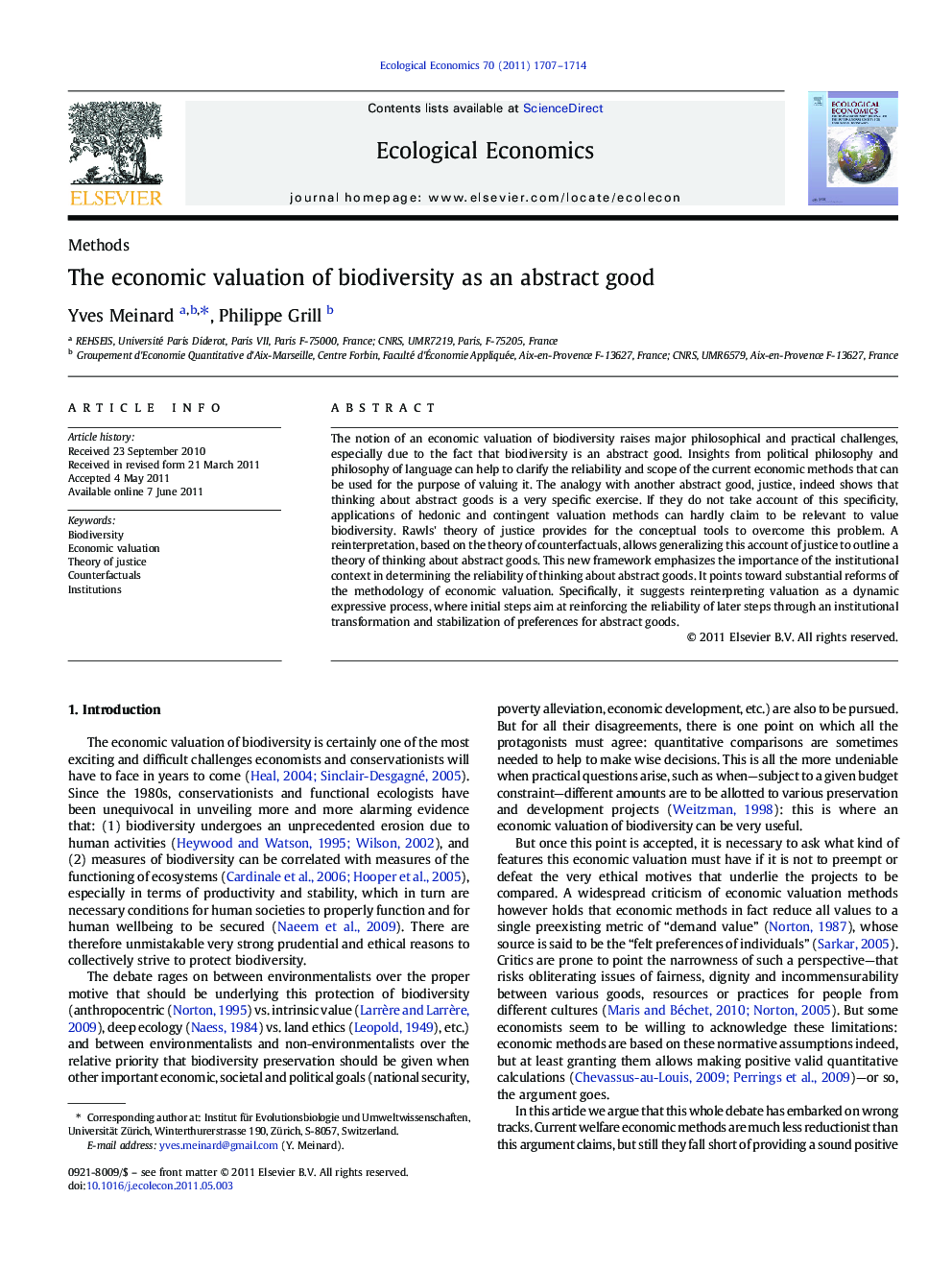| Article ID | Journal | Published Year | Pages | File Type |
|---|---|---|---|---|
| 5050641 | Ecological Economics | 2011 | 8 Pages |
The notion of an economic valuation of biodiversity raises major philosophical and practical challenges, especially due to the fact that biodiversity is an abstract good. Insights from political philosophy and philosophy of language can help to clarify the reliability and scope of the current economic methods that can be used for the purpose of valuing it. The analogy with another abstract good, justice, indeed shows that thinking about abstract goods is a very specific exercise. If they do not take account of this specificity, applications of hedonic and contingent valuation methods can hardly claim to be relevant to value biodiversity. Rawls' theory of justice provides for the conceptual tools to overcome this problem. A reinterpretation, based on the theory of counterfactuals, allows generalizing this account of justice to outline a theory of thinking about abstract goods. This new framework emphasizes the importance of the institutional context in determining the reliability of thinking about abstract goods. It points toward substantial reforms of the methodology of economic valuation. Specifically, it suggests reinterpreting valuation as a dynamic expressive process, where initial steps aim at reinforcing the reliability of later steps through an institutional transformation and stabilization of preferences for abstract goods.
Research Highlights⺠Current economic valuation methods can be reinterpreted as expressive devices. ⺠Thinking about abstract goods like biodiversity is a very specific mental exercise. ⺠To value abstract goods economic methods have to integrate a new model of thinking. ⺠Rawlsian theory and the philosophy of counterfactual thinking provide such a model. ⺠This model suggests reinterpreting valuation as a dynamic and formative process.
